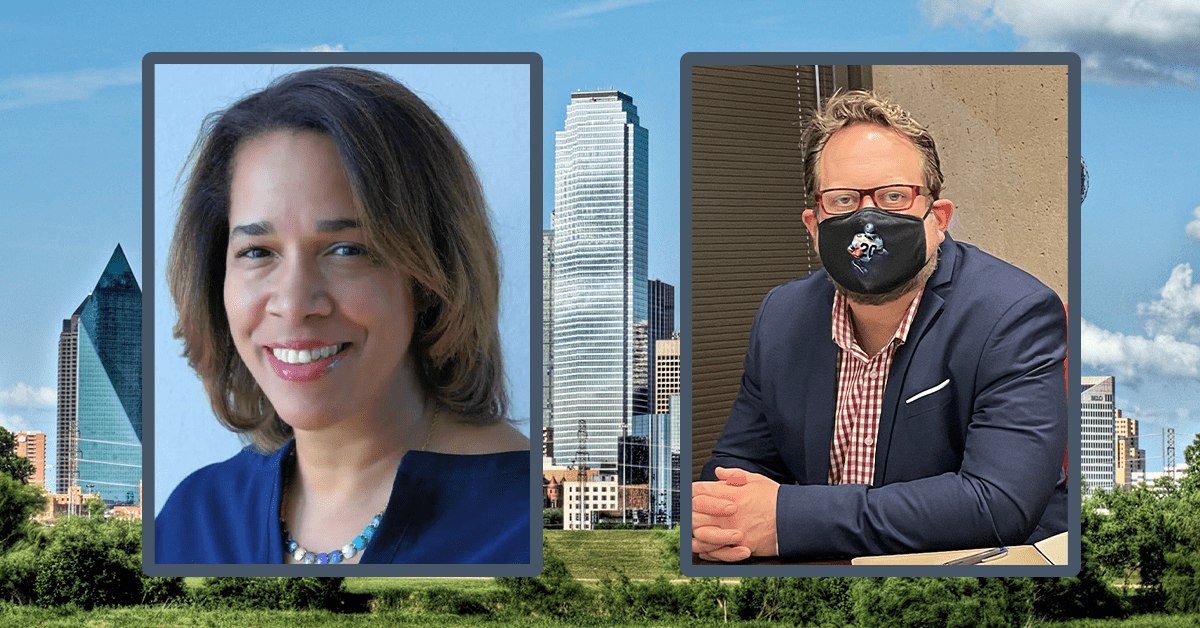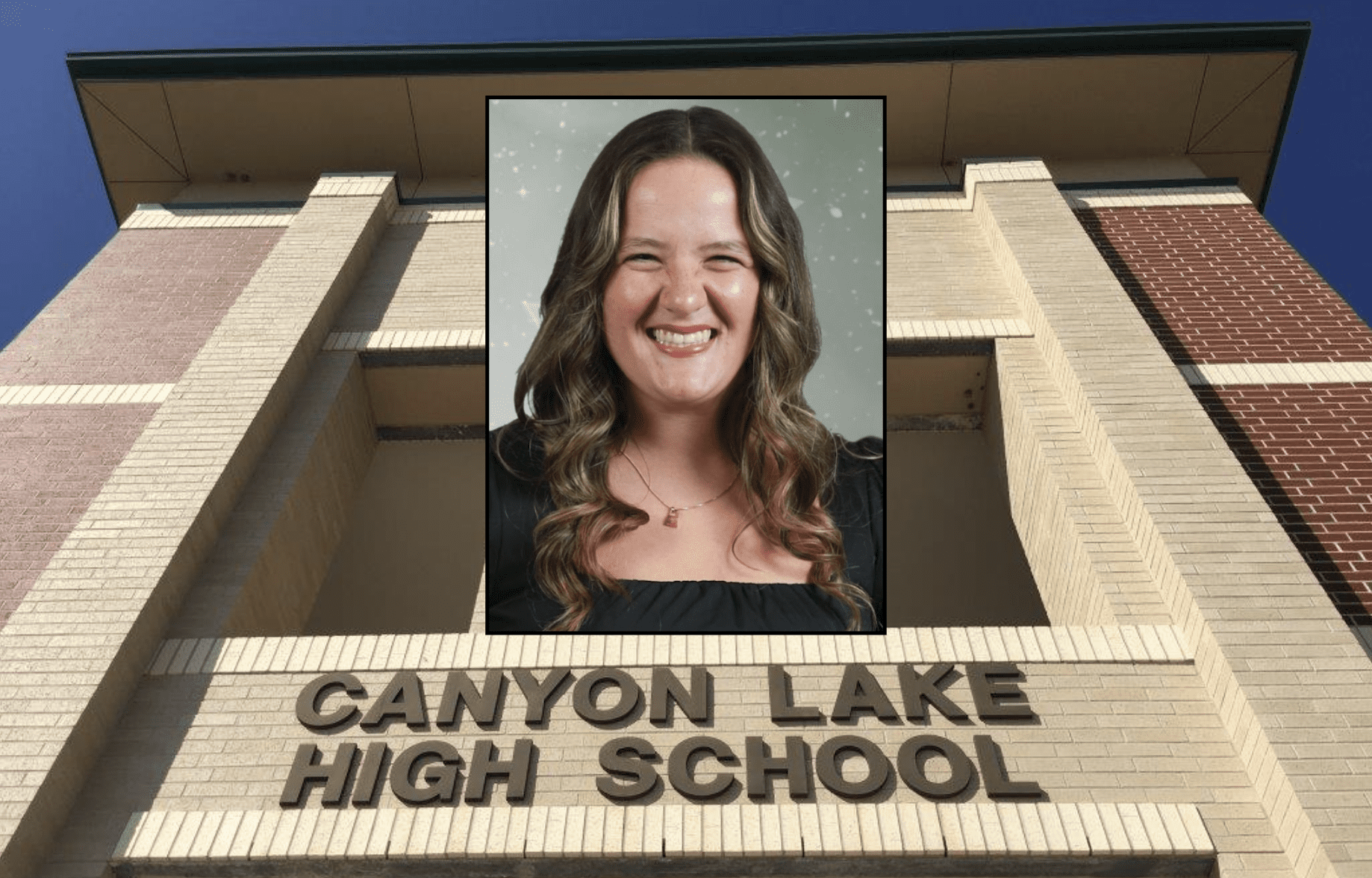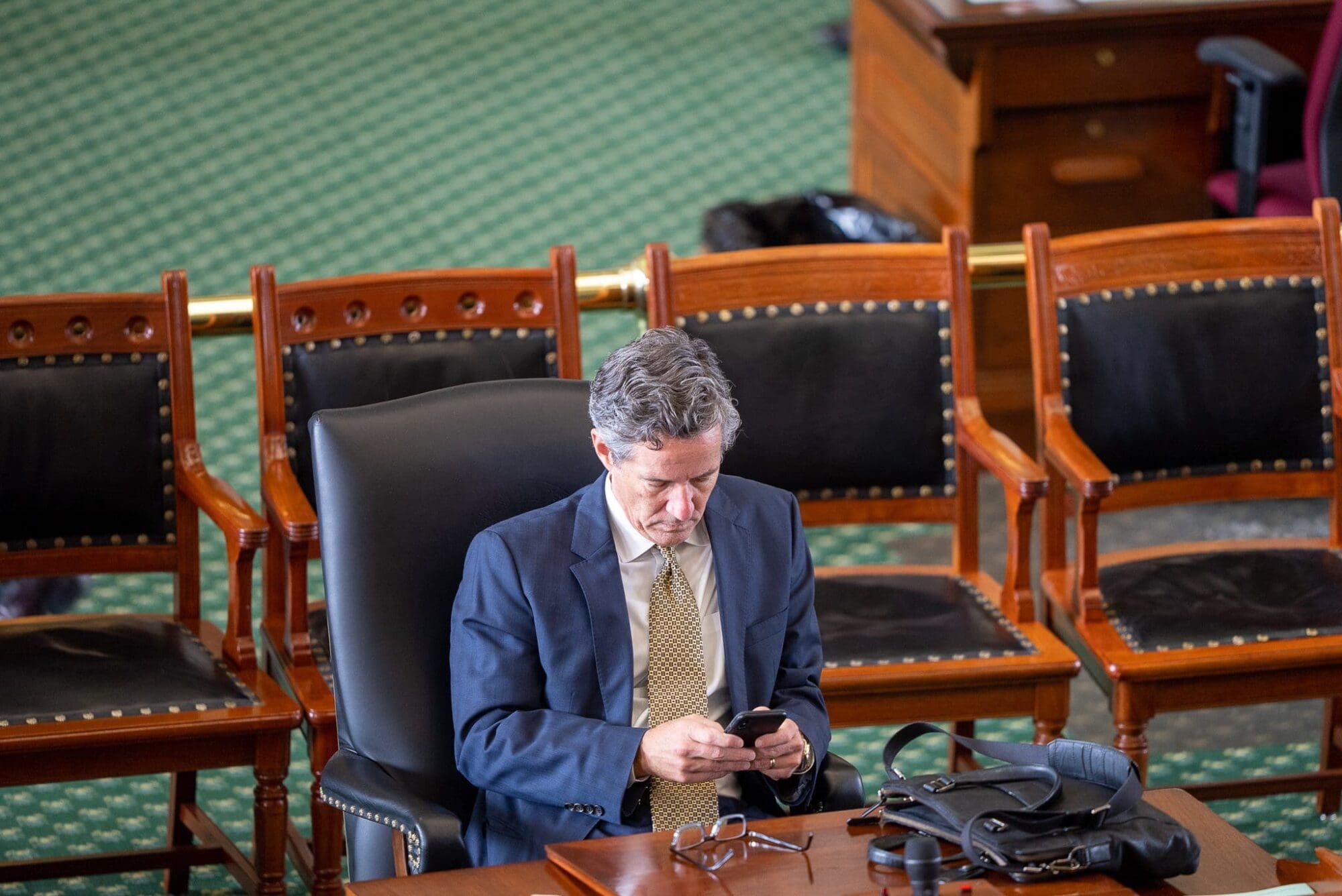This publication does not endorse political candidates.
As public safety remains a primary issue for local voters heading into May local elections, two Dallas City Council candidates are challenging incumbent member Paula Blackmon, who voted last year to cut police overtime by $7 million.
Blackmon also sent a letter to City Manager T.C. Broadnax months before the overtime vote, asking him to “present options that reallocate public safety funding to equitable community funding for Council discussion during the already-scheduled June 17th Budget-Workshop.”
Texas Scorecard held separate interviews with Blackmon’s opponents, candidates Judy Kumar and John Botefuhr, to hear how they plan to address the critical topic.
__________
Texas Scorecard: Crime went up last year in all of Texas’ five major cities, Dallas included. What is your plan to deal with this and restore law and order to Dallas?
Kumar: We need to restore and increase our funding to the police. We need to attract and keep our police. That’s one of the reasons why we have to increase the funding, because we don’t pay as well as our neighbors do. We’re going to have to make sure that their pension is intact after 2024.
Kumar also mentioned trying to keep graduates from the Dallas Police Academy in Dallas.
Kumar: Why do we spend $100,000 per cadet training them, and not have it written in the contract that they’re obligated to work for the city for three to five years before they can move elsewhere? Or if they choose to move elsewhere … that city then has to pay back the $100,000?
She also mentioned the need for foot patrols.
Kumar: Foot patrols in low-income neighborhoods work to lower crime because it shows that there’s a development of trust, that people are putting themselves out there. They become a regular, predictable face within the community. We need to do that and support more programs that foster more positive relationships between the police [and the community].
Botefuhr: The first thing to do is not take a stance on defunding our police force. We need to secure the pension; we need to bring back the market-rate pay, which Paula Blackmon took out. They did give a raise to our police officers, but that’s a band-aid because now it’s still not being compared with the 17 other cities that it’s supposed to. Frisco and Allen are still paying more for their police officers, so they leave our academy and go work up there. My plan would be … let’s secure the market rate pay rates, let’s secure their pension. Then let’s bring some pride back to our Dallas police force. And we’ve got a great chief right now, who has by all measures shown that he’s committed to lowering that crime [rate].
Texas Scorecard: Truth in Accounting found Dallas to be a financial “sinkhole,” meaning it would need $13,500 more per taxpayer to pay all its bills. They also found, out of all the major cities in Texas, Dallas entered the coronavirus situation in the worst financial shape and that most of this problem stemmed from growing unfunded retirement obligations. How would you address this?
Kumar: I believe the only way we can address this is going to have to be through a bond. I mean, we don’t have the tax base. We could have been growing our tax base if our office that deals with issuing building permits had issued them in a timely manner. We lost $400 million in tax revenue because building permits weren’t issued.
Botefuhr: It may have to come to [a bond] because we get hit with this every budget … playing catch up from our pension crisis. And that’s not giving confidence to hire new police officers if they don’t feel that their pension is going to be secure.
Texas Scorecard: There are citizens concerned about bad actors in the police department, particularly after the arrest of Dallas Officer Bryan Riser for murder. How will you maximize accountability and transparency in the police department?
(Note: A judge ordered Riser’s release after prosecutors said they didn’t have enough evidence to convict him. Kumar was asked this question before Riser’s release, while Botefuhr was asked afterward).
Kumar: It goes all the way to the top, and so if it turns out that people in the department or people in city council knew that this was going on, they need to step down. And the extent that any of your knowledge is of a criminal bearing, it needs to be turned over to the DEA or to the state attorney general.
Botefuhr: I think we’ve got to increase the funding for their training. I think transparency is key. I feel like the new chief has shown a lot of transparency. Whatever happened with the Bryan Riser [case], how that ended, it shows a willingness to take care of his side of the street on here. When you take money out of public safety, we are also taking money out of training. So, to keep that transparency available, you’ve got to be trained to know what transparency means at [the] background level, so I’m 100 percent for transparency.
Texas Scorecard: Derek Cohen of Right On Crime says Brady or Giglio lists show police officers district attorneys won’t call to testify because it would have to be stated publicly on the judicial record that this officer should not be trusted because of X, Y, and Z. He believes, from a public integrity standpoint, people on Brady lists shouldn’t be police officers. Dallas calls these lists “disclosure compliance,” and a member of city staff revealed she understands there are “hundreds” of DPD officers on these lists. Do you believe such police officers should continue to serve? Why or why not?
Kumar: I think it depends on the level of evidence and information about the particular police officer. We have to reassure all of our community, whether they’re in District 7, or in [District] 2, or any of the other areas that have conflicts with the police, we have to reassure them we are going to prosecute bad actors, whether they’re citizens or whether they’re police. That’s our duty. That’s part of keeping the city safe … making sure that the law is equally applied to everyone.
Botefuhr: They should be able to testify for each case. What they’ve done in their past or that may have been dealt with through the process of police force and internal affairs, there’s a process for that. But they’re not going to be allowed to testify for a certain case that may have nothing to do with those previous actions. Why should that matter? If you’re a witness to an event as a police officer, you should be able to bring that to a court case. I think our district attorney having a list like that seems … a little “Big Brother” to me.
Botefuhr was asked what city policy should be towards officers on Brady lists.
Botefuhr: Take it case by case. Get rid of it. Get rid of the whole list right now.
Early voting for the May 1 local elections in North Texas runs April 19-27. Citizens may find all the candidates for District 9 on the city’s website.





